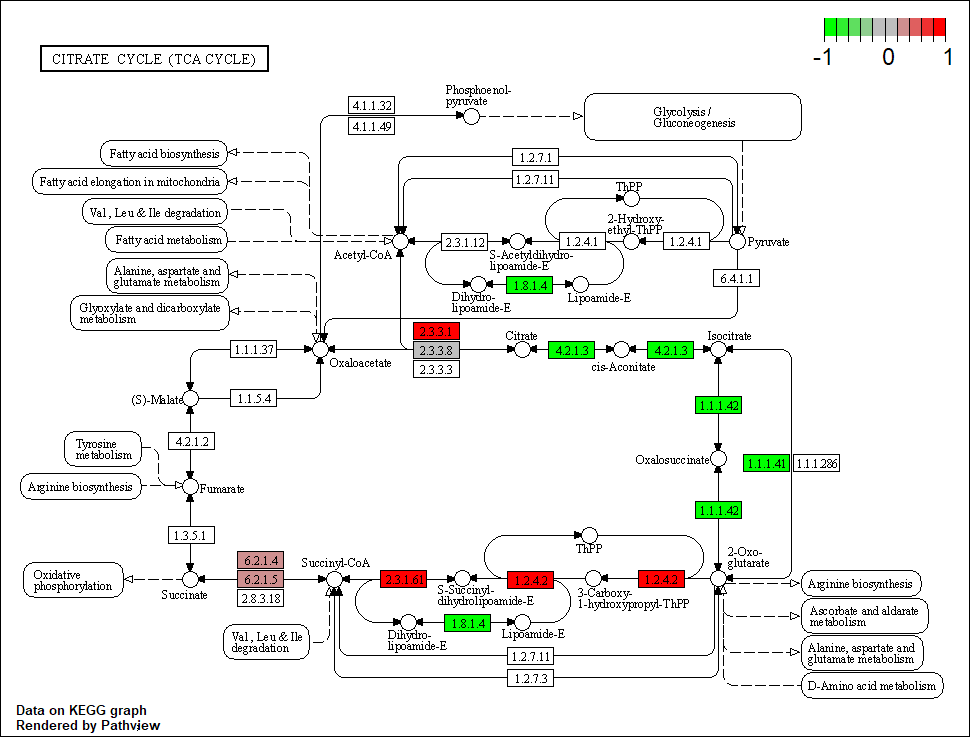Hello!
I work with a nonmodel organism that does have a valid KEGG species code listed here: https://www.genome.jp/kegg/pathway.html
This is the command I tried using:
test <- pathview(gene.data=geneList, pathway.id="00440", species="MyKEGGSpeciesCode")
And this is my error:
Note: Unknown species 'MyKEGGSpeciesCode'! Error in kegg.species.code(species, na.rm = T, code.only = FALSE) : All species are invalid!
What I have tried:
- Re-installed the following programs (according to what was advised for a similar issue: Pathview unable to download pathways)
detach("package:pathview", unload = TRUE)
devtools::install_github("javadnoorb/pathview")
library(pathview)
detach("package:KEGGREST", unload = TRUE)
BiocManager::install("KEGGREST")
library(KEGGREST)
I also attempted the command replacing human ("hsa") for "MyKEGGSpeciesCode", which did work...
I know the KEGG identifier for my species is valid, because this download worked:
Pathways <- read.table("http://rest.kegg.jp/list/pathway/MyKEGGSpeciesCode", quote="", sep="\t")
I already used the gage package for the KEGG enrichment, I just want to be able to visualize my results.
Please help D: thank you!!!!!



What is the non-model organism that you are working with?
Photinus pyralis https://www.genome.jp/kegg-bin/show_organism?org=ppyr